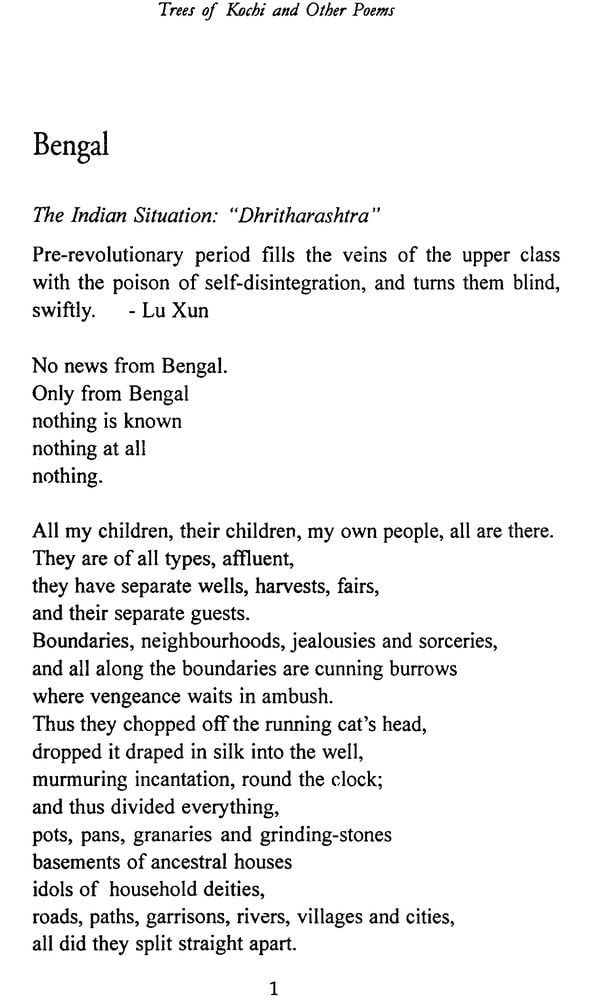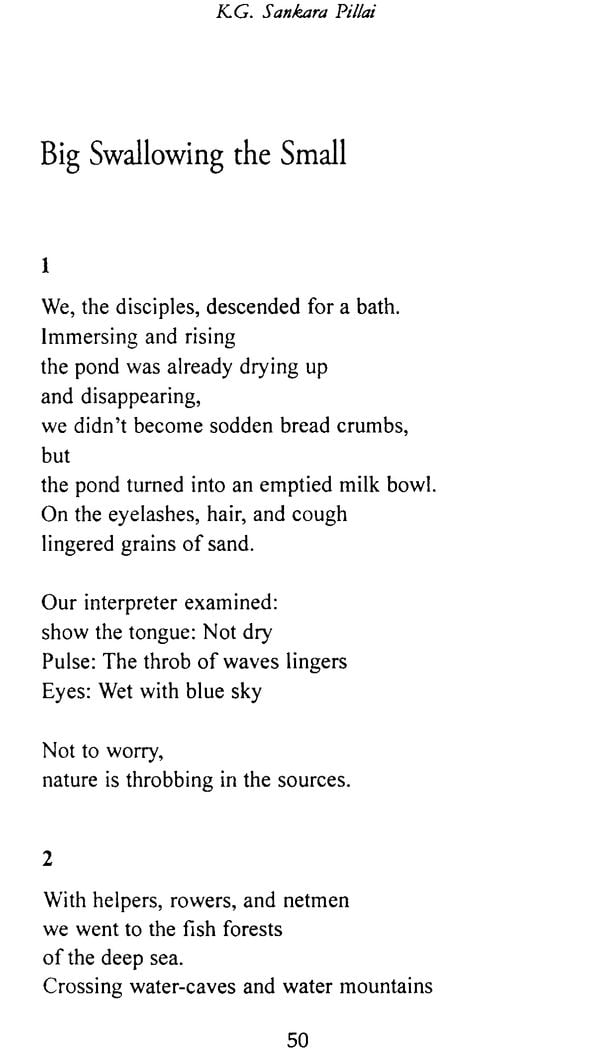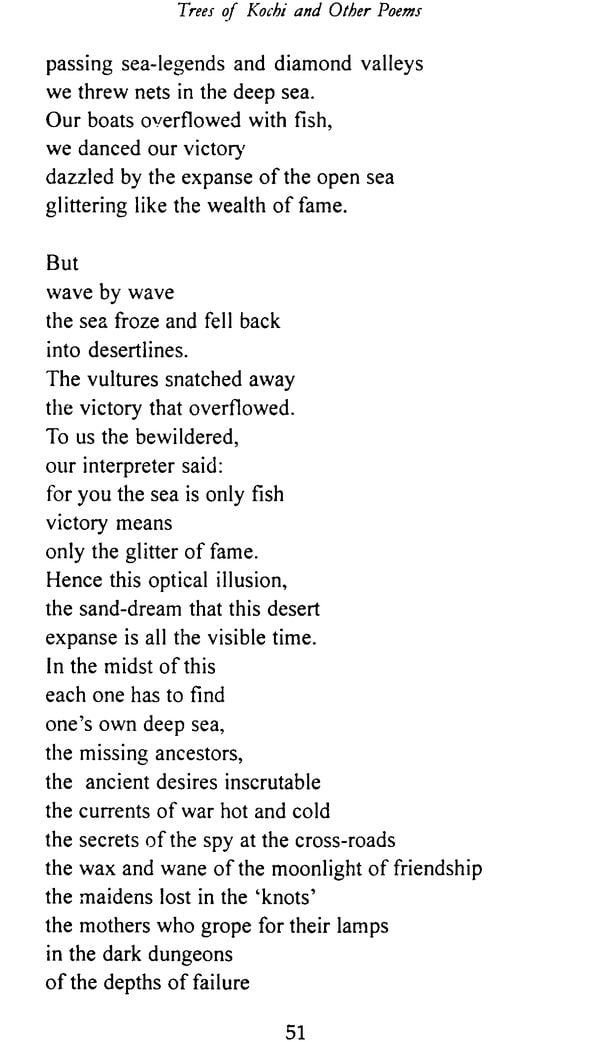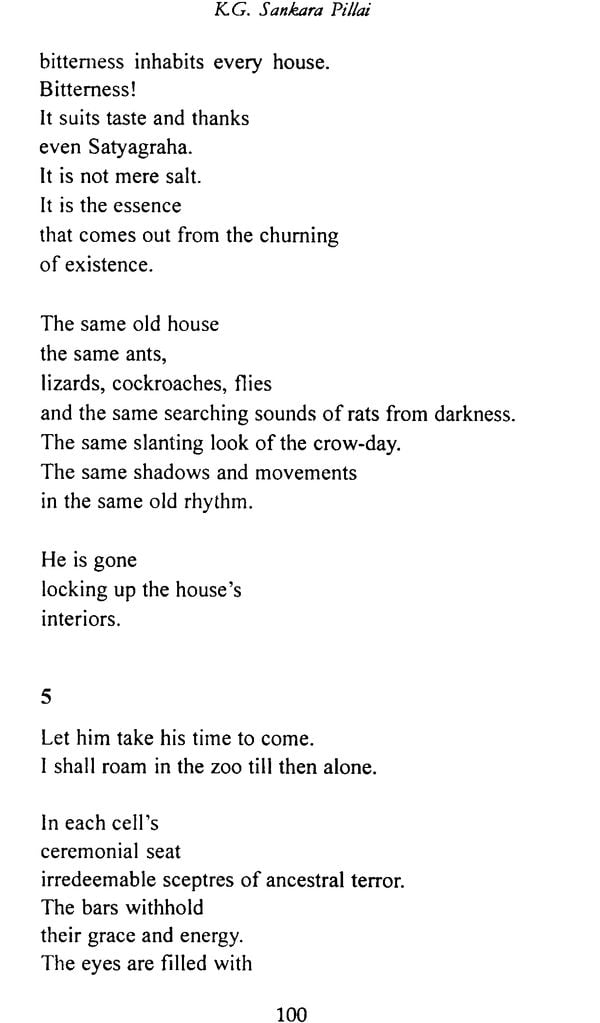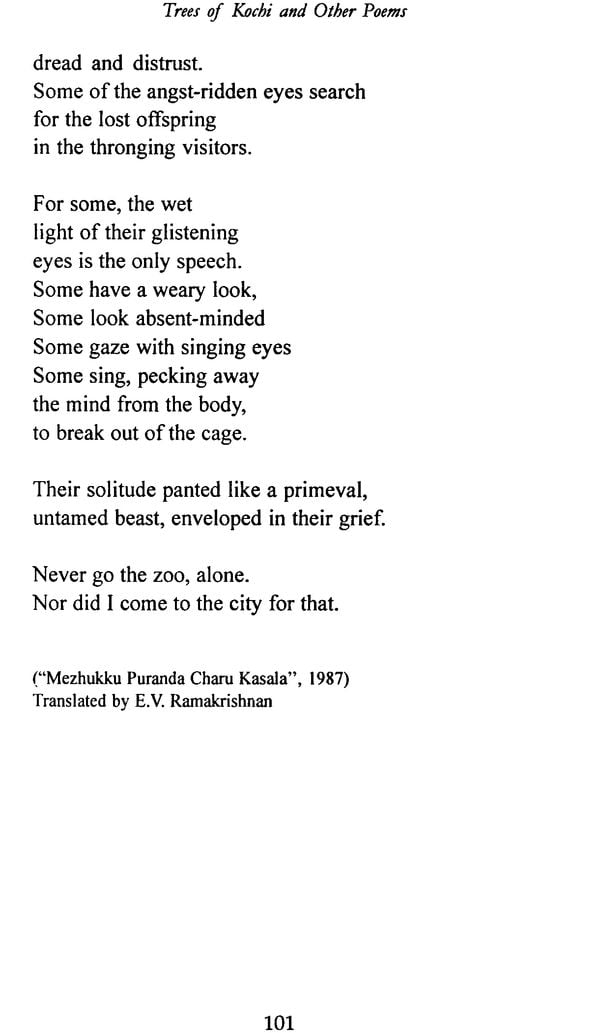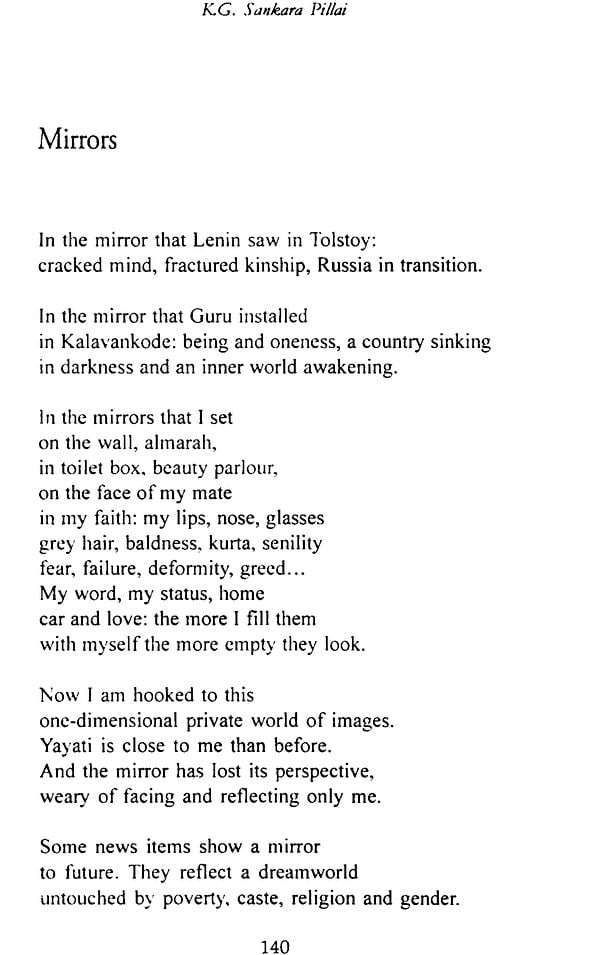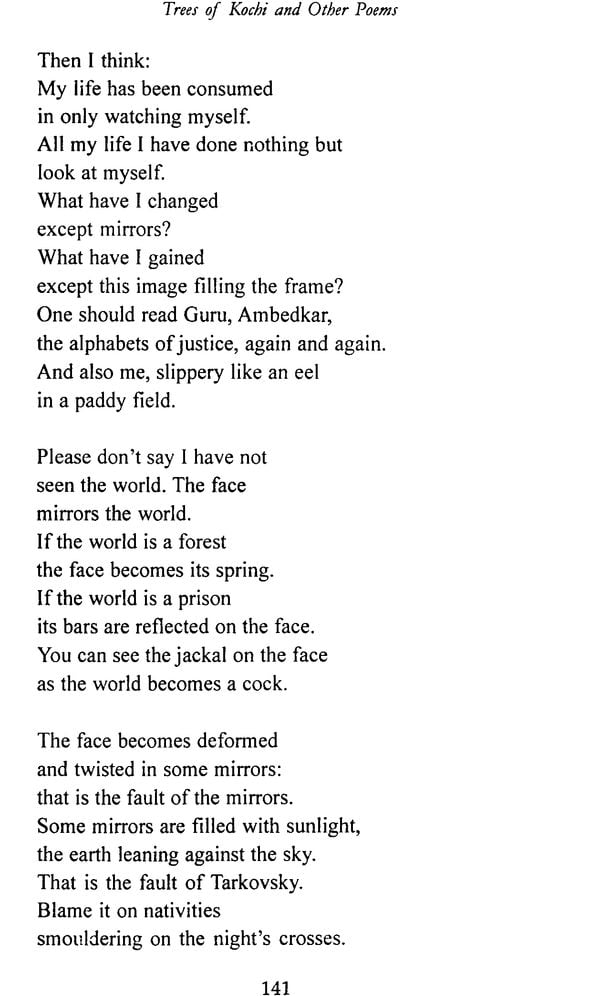
Trees of Kochi and Other Poems (Award Winning Collection of Malayalam Poems)
Book Specification
| Item Code: | NAL152 |
| Author: | K. G. Sankara Pillai |
| Publisher: | Sahitya Akademi, Delhi |
| Language: | English |
| Edition: | 2016 |
| ISBN: | 9788126047482 |
| Pages: | 160 |
| Cover: | Paperback |
| Other Details | 8.5 inch X 5.5 inch |
| Weight | 320 gm |
Book Description
Trees of Kochi and Other Poems is a collection of the major poems of K. G. Sankara Pillai from his volume, K. G. Sankara Pillayude Kavithakal 1969-1996 which won Sahitya Akademi Award in in 2002, along with a selection of the poems from his volumes.
In his poems, he alludes to famous writers, great leaders, characters from great work, famous painters and film directors. Buddha and Christ are enduring presences in his poems, helping him identify a moral fulcrum that can prevent the fragmentation of the self. Sometimes, Mother Teresa or Narayana Guru takes that central role.
He has been able to incorporate into the thematic range of his poetry contemporary issues pertaining to environmental degradation, struggles of civil society, political violence, subaltern movements and gender/caste discrimination. His awareness of world poetry, art history and contemporary films seeps into the texture of his poetic voice, enriching it with inter-textual echoes from diverse arts and mediums. His poetic idiom communicates acute insights through the use of irony, satire and sarcasm, unsettling the readers from their habits of complacency.
K.G. Sankara Pillai rose into prominence in Malayalam poetry in the seventies when an earlier generation of modernists had already established a fresh experimental idiom bristling with restlessness and revolt. Later, he moved away from its apolitical, formalist ethos to confront the socio-political excesses in his poetry in a voice that was both cosmopolitan and critical. He captures the voice of the radicalised youth whose sense of rejection and rage demanded new metaphors of resistance. He developed into a poet of social conscience and moral commitment whose anguished tone spoke of the need to reinvent the language of imagination in an age of pervasive violence and insensitivity.
| The Word and the World: Poetry as Resistances | vii |
| Bengal | 1 |
| Baldness | 12 |
| The Dhobi and the Dhoti | 16 |
| Who Else is There to Come? | 17 |
| The Gecko's Tail | 20 |
| Sweets | 21 |
| Fire fighting | 23 |
| Trees of Kochi | 28 |
| Girdle | 32 |
| Photos in Various Poses | 34 |
| In the City of the Noise-Demon | 38 |
| Sandtime | 39 |
| Refuge | 44 |
| Meaning | 46 |
| Rejection | 47 |
| Big Swallowing the Small | 50 |
| How Far will We Go? | 54 |
| Deep Layers of the Word | 55 |
| Future Shade | 58 |
| The Spectator | 60 |
| The Horses Who has to Masquerade as Donkeys | 63 |
| Gorkha | 70 |
| The Spectacle of Speech | 73 |
| Favours Returned | 76 |
| Deep Within | 77 |
| Between the Nectar and the Poison | 79 |
| Not on the Cross Alone | 84 |
| The Devil | 85 |
| The Camel | 86 |
| Pray Thus, If You Must | 89 |
| Interview | 96 |
| The Oily Easy Chair | 97 |
| The Path | 102 |
| Continuum | 104 |
| A Sky, Twisted and Folded | 106 |
| Nostalgia: Feet Seen Through a Pair of Torn Socks | 117 |
| Prologue to An Autobiography | 120 |
| Polyphony of the Day | 122 |
| A Strange Experience of Professor Vividhagamanan | 125 |
| More of the Sun in Buddha's Words than in Sunlight | 130 |
| Come, See This Street of Blood | 132 |
| Memories that Can Unlock Doors | 135 |
| That which Comes from Above | 138 |
| Mirrors | 140 |
| They did not Complements Each Other | 143 |
| Therefore I did not Go Insane | 145 |
| Notes on Translators | 147 |
